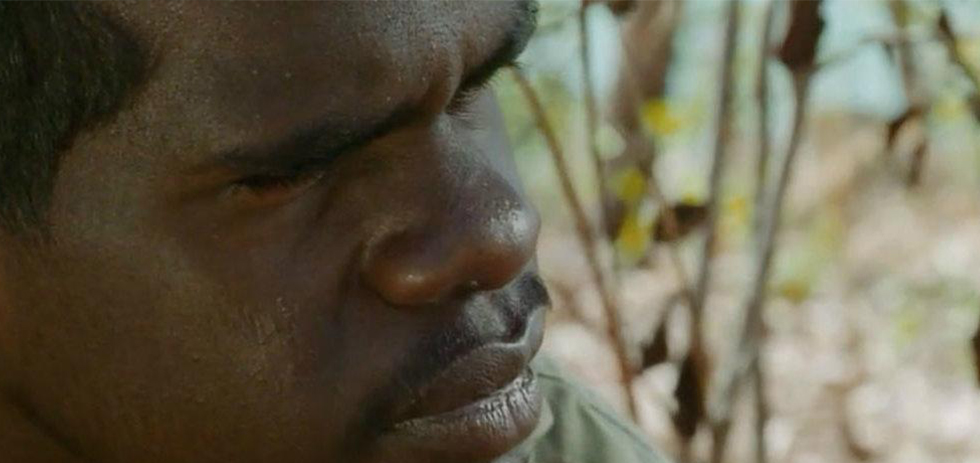
The Karrabing Film Collective has been active since 2008, however, their latest two shorts at Melbourne International Film Festival represent the most comprehensive offering from the group; as snapshots of issues affecting indigenous communities in the regions that make up the Collective. Karrabing translates to “low tide turning”, which serves as a both a statement of identity and intent for the group, with both of the films marking a move in indigenous cinema in Australia to directly address persistent issues in a new and increasingly autonomous way. In the Karrabing Shorts selection, 2014’s When the Dogs Talked and 2015’s Windjerrameru tackle housing, neglect, alcoholism and identity under the intervention within communities near Darwin.
Opening on a sequence depicting a group cleaning an overcrowded house in Darwin, When the Dogs Talked looks at the very real issue of housing scarcity for Indigenous Australians in the Northern Territory, and the complications that result. The scenes fall away as a woman leaves the city for the bush, hoping to find her sister (the owner of the house) to sort out the overcrowding. The Collective display a masterful control of tension and release, with the scenes in the bush creating a sense of relaxation and timelessness in stark contrast to the chaos of the city life. Forced by the increasingly marked dichotomy between city and bush life in Darwin – and with this, the perks and disadvantages that government intervention has associated with both choices – the characters in the film act out a reality where the intervention has had an overwhelmingly negative effect on both the lives and the souls of Indigenous Australians. In doing so, the collective demonstrate how lacking in self-awareness this process remains.
From one snapshot to another, Windjerrameru presents a difficult look at alcoholism amongst the youth in the same communities. That said, the Karrabing Film Collective make their relationship to the topic clear from an early point in the film. They have created a work that is far less concerned with surface-level explanations of how alcohol use has emerged in communities than it is with the way that the presence of consumerism, intervention and bureaucratic policymaking has impacted upon those portrayed. It is clear and unwavering throughout: these are issues that have emerged as a result of the unacknowledged failures of White Australia that has advanced the policies of Intervention that we see in When The Dogs Talked. In this latter film, the collective demonstrate White Australia’s fundamental lack of reflexiveness in their misunderstanding of the issues, as well as their inability to realise the overwhelmingly negative effects of such a policy.
Both of the Karrabing Film Collective Short’s complement and cement the arguments, stories and imperatives expressed in one another. In every one of Karrabing’s shorts are snapshots of different facets of the Indigenous experience. Even considering all of this, it’s important not to forget what’s at the heart of the Karrabing Film Collective, and that’s something that comes off clearly in both shorts: storytelling. For every political point and social message, the Collective’s tale always hits as hard as it does because of their natural and evocative style of telling the stories where this commentary emerges. In Windjerrameru and When The Dogs Talked it’s more than obvious why they’ve gone with the name “Karrabing” – although things are just starting out for the group, their fresh, skilful and deeply creative approach to conveying these stories is definitely the begin of a larger movement; one that is long overdue.
